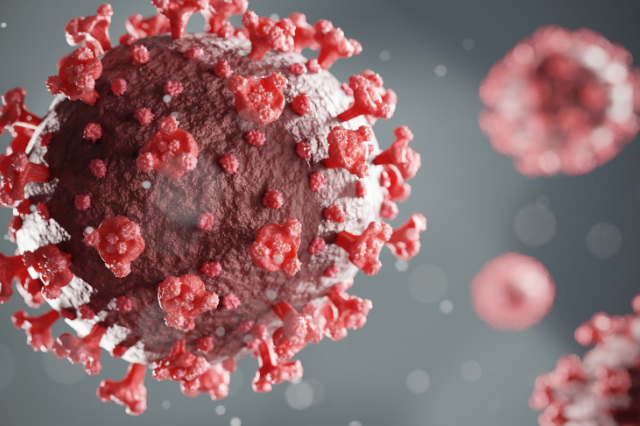Guidelines
COVID-19 Resources
While many states across the country are relaxing physical distancing and other restrictions put in place in response to COVID-19, people remain at risk for infection based on widespread community transmission and increasing population prevalence of the virus. Physicians should use their personal and professional judgment in interpreting guidance recommendations and applying them to the circumstances of their individual patients and practice arrangements.

As the leader in developing clinical guidelines and standards in addiction medicine, the 反差系列 (ASAM) takes our responsibility very seriously. We convened the ASAM Caring for Patients During the COVID-19 (CPDC)
Task Force to rapidly develop guidance tailored to addiction medicine treatment within the context of the COVID-19 pandemic.
While many states across the country are relaxing physical distancing and other restrictions put in place in response to COVID-19, people remain at risk for infection based on widespread community transmission and increasing population prevalence of the virus. As a result, the pandemic continues to impact the work of addiction treatment clinicians and programs as they strive to maintain safety for both staff and patients. Physicians should use their personal and professional judgment in interpreting guidance recommendations and applying them to the circumstances of their individual patients and practice arrangements.
These FREE materials are provided for educational and informational purposes only. The guidance is not intended to provide legal or medical advice and should not be relied upon as such.
A collection of educational webinars addressing guidance for addiction medicine treatment within the context of the COVID-19 pandemic. All resources are made available FREE through ASAM’s e-Learning Center.
Practice Area Guidance
Ongoing Management of the Continuum of Addiction Care During COVID-19
While many places across the country are starting to relax physical distancing restrictions, the COVID-19 pandemic is not over. Communities and treatment programs across the country remain at risk for increasing population prevalence over time.
Access to Buprenorphine in Office-Based Settings
Guidance to ambulatory addiction treatment providers, including those working in primary care, and programs as they strive to ensure that patients continue to have appropriate access to buprenorphine.
COVID-19 Vaccination and Addiction Treatment
The dissemination of effective vaccines against the COVID-19 virus is a key strategy towards controlling the COVID-19 pandemic.
Considerations for Return to In-Person Services
The mass dissemination of effective vaccines against the COVID-19 virus is bringing hope for a full return to usual activities and routines. That includes a return to in-person visits for addiction treatment.
Addiction Treatment in Acute Hospital Settings
This guidance is related to the delivery of addiction treatment in hospital settings during the COVID- 19 pandemic.
Medication Dosage or Formulation
Guidance to outpatient addiction treatment providers in selecting medications and adjusting medication dose or formulation during the COVID-19 pandemic.
Adjusting Drug Testing Protocols
Balancing the utility of having the data from a urine drug test against the risk of COVID-19 virus exposure to patients, laboratory staff, and clinic staff/providers.
National & State Guidance
This webpage contains news, guidance and resources from around the country regarding addiction treatment in the wake of COVID-19.
Clinician Wellbeing
It is essential that clinicians, treatment facilities, programs, and healthcare systems take steps to protect clinician wellbeing during this public health crisis and beyond.
Supporting Access to Alcohol Use Disorder and Alcohol Withdrawal Treatment
Guidance to addiction treatment providers to support continued access to care for alcohol use disorder and alcohol withdrawal management during the COVID-19 pandemic.
Infection Mitigation: Outpatient Settings
This provides guidance to outpatient addiction treatment providers and programs when developing infection control procedures to address the COVID-19 pandemic.
Support Group Participation
A guide for addiction treatment providers and programs working to treat patients with substance use disorders safely and effectively during the COVID-19 pandemic.
Infection Mitigation: Residential Treatment Facilities
Guidance to residential addiction treatment programs (ASAM Levels 3.1, 3.3, 3.5 and 3.7), supporting the development of infection control and mitigation procedures to address the COVID-19 pandemic.
Treating Unhoused People with Addiction
This resource is intended to provide guidance on the issues related to adaptations safety net systems may need to make to address individuals with addiction and lack of housing as they navigate the COVID-19 crisis.
Managing Justice-Involved Persons with Addiction
This guidance is intended to provide guidance on issues related to adaptations criminal justice systems and addiction treatment providers may need to make to address individuals with addiction and criminal justice involvement during the COVID-19 crisis.
Telehealth Access for Addiction Treatment
Regulatory Overview and General Practice Considerations
Treating Pregnant People with Opioid Use Disorder
Guidance for addiction treatment providers and programs on the treatment of pregnant people with OUD during the COVID-19 pandemic.
Patients
If you are a patient or family member or friend in need of immediate assistance:
- Disaster Distress Helpline
Call 1-800-985-5990 or text TalkWithUs to 66746 - National Suicide Prevention Lifeline
Call 800-273-8255 or
Feedback?
If you have questions related to the guidance in this document or suggestions for additional topics, please email COVID@asam.org
LEARN ABOUT TASKFORCE MEMBERS, A NATIONAL PANEL OF EXPERTS
